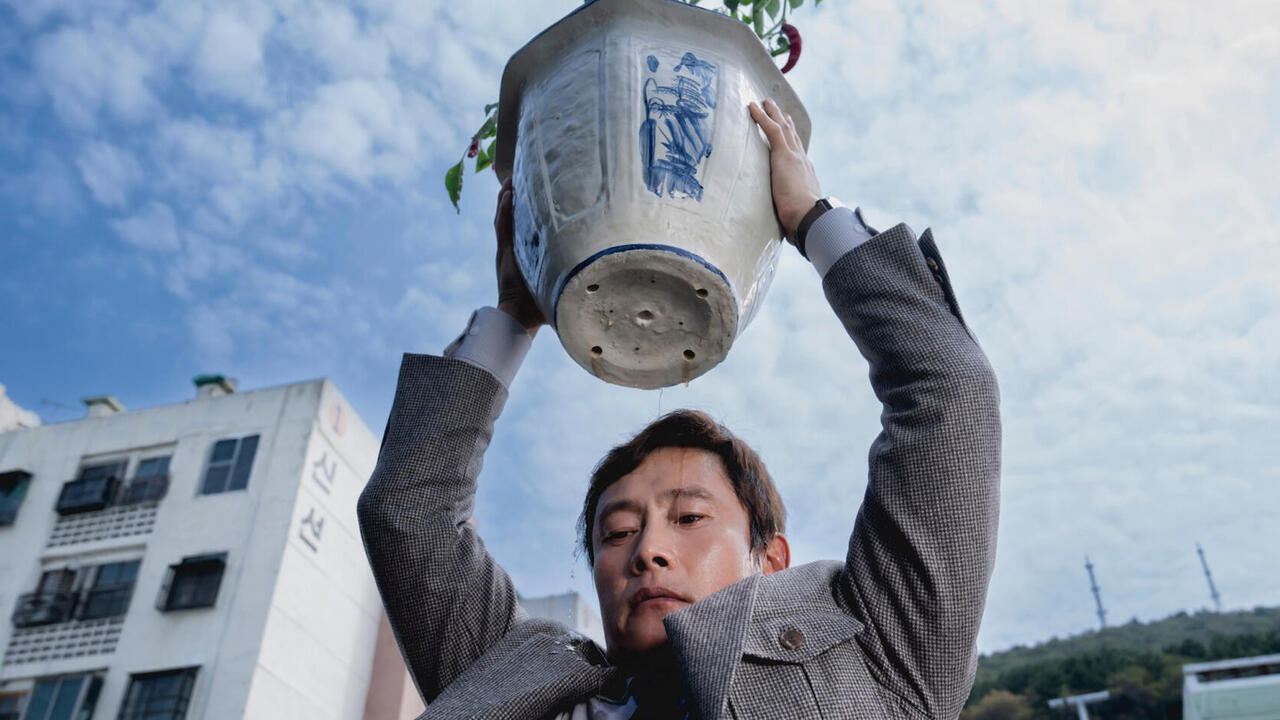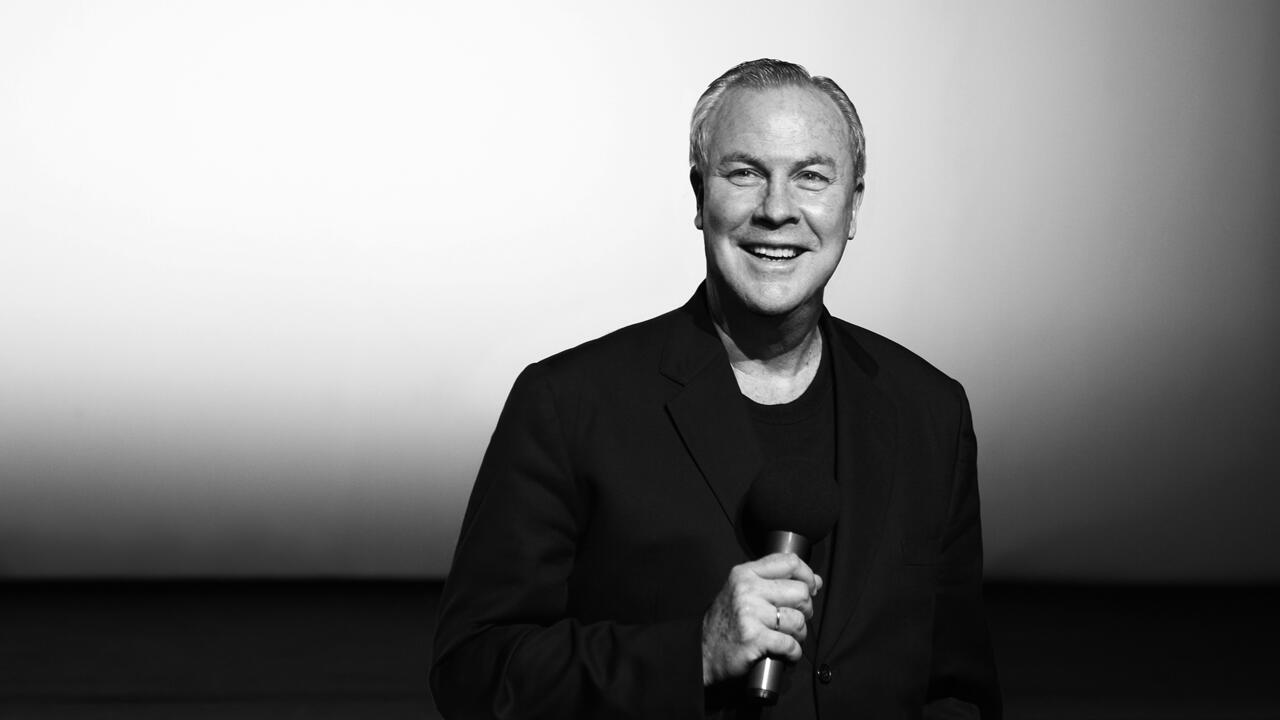‘Fumbling Towards Absolution’: John Patrick Shanley’s Off-Broadway Revival
‘Danny and the Deep Blue Sea’ sees its two protagonists entangle over romance and Catholic guilt
‘Danny and the Deep Blue Sea’ sees its two protagonists entangle over romance and Catholic guilt

Catholics! They drink, they curse, they weep and hit and punch the walls, they beg for forgiveness, throw salt over their left shoulder, they love hard and with a jealous eye, and they make for great protagonists if you want your characters to arrive readymade with roiling troubles, conflicted attitudes about sex and a preponderance for ritual. John Patrick Shanley has built a career out of divulging the inner psyche of Catholics, especially the working-class, outer-borough kinds with thick accents and grizzled hands, from the superstitious widow in Moonstruck (1987) to the vengeful, crusading Mother Superior in Doubt (2008).
Danny and Roberta are Catholics. They are drunk, abrasive, paranoid outcasts drinking beer by the pitcher and pawing at a bowl of pretzels, and while little time in Shanley’s Danny and the Deep Blue Sea (1983, revived 2023) is spent discussing religion, these are wretches that only Catholicism could produce – prickly barfly hair triggers who wear their sins on their sleeve, meet each other with a ‘fuck off!’ and spend the ensuing night and morning after fumbling towards absolution.

The revival of Shanley’s play off-Broadway at the Lucille Lortel Theatre is a provocation on multiple levels. The first act begins, after a short prelude by Hall & Oates, on the attack. The two characters, played by Christopher Abbott and Aubrey Plaza (in her stage debut), are at the end of a long night stalking the darkened corner of a carpeted Bronx dive bar. Their patience has run thin. Roberta is nosy and she’s lonely; you get the sense that she expected someone to have picked her up by now. She asks about the bruises on Danny’s hands, and he blows up, setting off a back-and-forth of insults and blunt conversation. Barely a few minutes have gone by before he is divulging his murderous rage, she her suppressed sexual abuse, or both the suicides that both seem to be saving as a backup plan if the next few months (or hours) don’t quite shake out.
These terse exchanges have an anecdotal quality that keeps the actors boxed in on either side of the stage. They hurl the halting fragments at each other and twitch nervously while they wait for a response. Shanley has a knack for biting, clever dialogue that skirts the edge of malice until it tips over, but here the comic brio never really abates, even when we’re supposed to be shocked by the sudden violence. It is sketch comedy rendered into drama. The first act, especially, which culminates with Danny’s hands gripped around Roberta’s throat, was punctuated with nervous tittering from an audience who didn’t seem to know what to make of whiplash.

The abrupt transition from that explosiveness to a quieter, more intimate second act is, in this version, tempered by a new, stylized pas de deux between Danny and Roberta which resurrects the play’s subtitle, ‘An Apache Dance’. And while dynamically choreographed and performed with a brazen desperation, this scene fails to reveal any dynamic between them that is not already telegraphed by the overtness of the script.
The revival is spearheaded by Abbott (also a producer) and director Jeff Ward, whose approach takes the form of a challenge: when New York theatre seems to have shifted its attentions to more verbose and politically minded plays, how do you restore the resonance of a play whose sledgehammer handling of deep-seated pain has made it a favourite of conservatory auditions? In a 2023 interview with New York Magazine, Ward describes the choice as ‘almost trite’, with Abbott adding that he wanted ‘to be witnessing something I shouldn’t be witnessing’. And there are times, when the rough and tumble insults are flying (‘lowlife beefcake faggot’) and the Bronx accents are stretched tightly over every syllable, that the production can start to feel like a high-stakes fantasy camp.

Danny and the Deep Blue Sea is rarely discussed without mention of Sam Shepard’s Fool for Love (1983) and Terrence McNally’s Frankie and Johnny in the Clair de Lune (1987), fellow tortured two-handers from the 1980s that form a trilogy of lost souls seeking redemption. That this style of play has fallen out of fashion is exactly the lure for the director and cast who see in its outsized emotions the means of recovering some lost truth, buried under a mound of postmodern ennui and meta-narrative over the past 40 years, or at least since its last, well-received production at Second Stage Theater, New York, in 2004.

It is the same motivation that has spurred something of a mini-revival of the genre across the river in Greenpoint, in the intimate living-room plays of the Brooklyn Center for Theatre Research: short, earnest, religiously searching and pointedly heterosexual. While those works tend to focus on the educated, over-stimulated Liberal Arts school transplants rather than the native-born white working class, both share a conviction that theatre is lacking something raw, something human; that truth in drama consists of two broken people pacing the room, baring their souls as often as their teeth.
Main image: Danny and the Deep Blue Sea, 2023. Courtesy: DKC/O&M; photograph: Emilio Madrid















